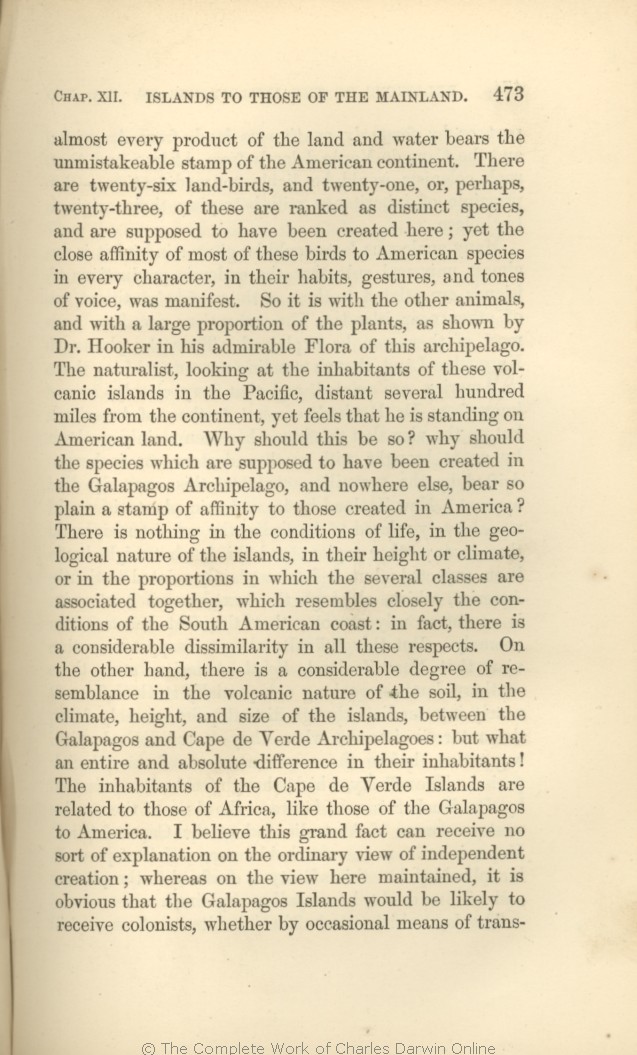almost every product of the land and
water | water 1859 1860 1861 1866 |
| the water 1869 |
| of the water 1872 |
| land-birds, 1860 1861 1866 1869 | | land birds, 1859 | | land birds; 1872 |
| and twenty-one, 1861 1866 1869 | | and twenty-five 1859 1860 | and twenty-one, 1872 |
| or, perhaps, twenty-three, of 1861 1866 1869 |
| of 1859 1860 1872 |
| these 1859 1860 1861 1866 1869 | | these, 1872 |
| are ranked 1861 1866 1869 |
| are ranked by Mr. Gould 1859 1860 |
| twenty-one or perhaps twenty-three are ranked 1872 |
| and are supposed 1861 1866 1869 |
| supposed 1859 1860 |
| and would commonly be assumed 1872 |
| created here; 1859 1860 1861 1866 1869 | | here created: 1872 |
| in 1859 1860 1861 1866 1869 |
| is manifest in 1872 |
| voice, 1859 1860 1861 1866 1869 | | voice. 1872 |
| was 1859 1860 1861 1866 1869 | was 1872 |
| manifest. 1859 1860 1861 1866 1869 | manifest. 1872 |
| a large proportion of 1866 1869 1872 |
| nearly all 1859 1860 1861 |
| OMIT 1866 1869 1872 |
| memoir on the 1859 1860 1861 |
| yet 1859 1860 1861 1866 1869 | yet 1872 |
| plain 1859 1860 1861 1866 1869 | | plainly 1872 |
| a 1859 1860 1861 1866 1869 | | the 1872 |
| resembles closely 1859 1860 1861 1866 | | closely resembles 1869 1872 |
| fact, 1866 1869 1872 | | fact 1859 1860 1861 |
| these 1859 1860 1861 1866 1872 | | the foregoing 1869 |
| volcanic 1859 1861 1866 1869 1872 | | volanic 1860 |
| the climate, 1866 1869 1872 | | climate, 1859 1860 1861 |
| Archipelagoes: 1861 1866 1869 1872 | | Archipelagos: 1859 1860 |
| I believe this grand fact can receive 1859 1860 1861 1866 |
| Facts such as these, admit of 1869 1872 |
| creation; 1859 1860 1861 1866 1869 | | creation: 1872 |
| colonists, 1859 1860 1861 1866 1869 | | colonists 1872 |
| whether 1859 1860 1861 1866 1869 |
| from America, whether 1872 |
| trans- port 1866 | | transport 1859 1860 1861 1869 1872 |
|









